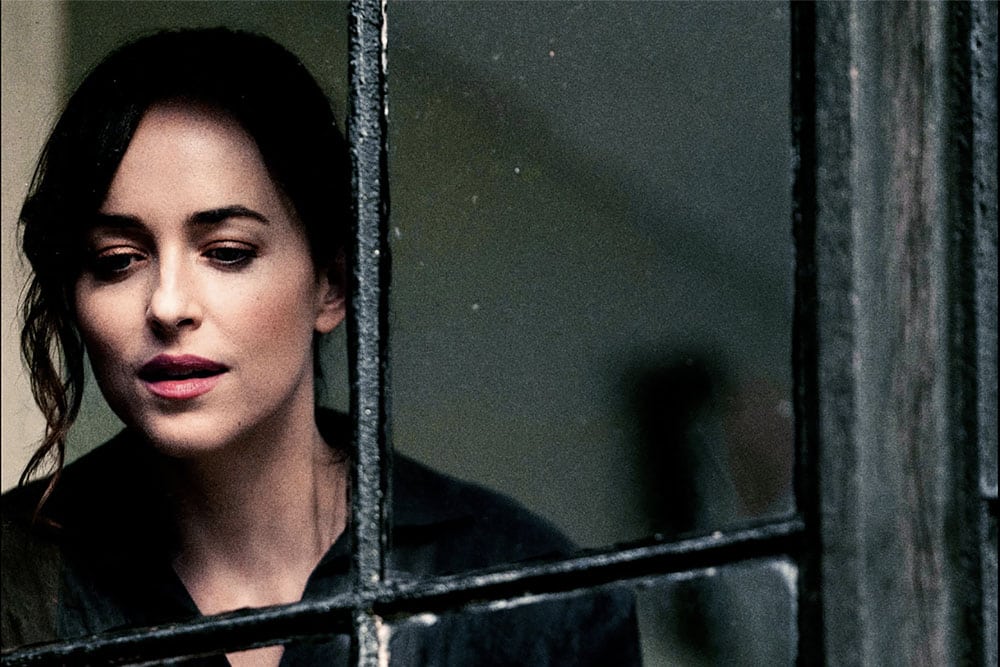
Who is Netflix’s Persuasion for? Jane Austen diehards will find it shallow, even disrespectful. Lovers of regency romance and its aesthetic conventions will find it dull. It is neither a faithful adaptation of the novel, published in 1817 nor a daring departure. Persuasion is not worth considering for those unfamiliar with the source material. It is not offensive to watch, it’s just not enjoyable.
Persuasion is not, as other critics have suggested, an “absolute disaster” or “the worst Jane Austen adaptation of all time.” In a way, the film is more upsetting than that. This isn’t the product of a misguided or unpopular vision. This film is made seemingly without any vision, the cinematic equivalent of using artificial intelligence to write a symphony.
Adapting Jane Austen is always a sensitive project. Austen fans are loyal and particular, and filmmakers have traditionally chosen between total faithfulness (as with the still-beloved 1995 BBC miniseries Pride and Prejudice directed by Simon Langton) or a total reimagining of that story (as in Joel Kim Booster’s Fire Island) Carrie Cracknell’s Persuasion makes the interesting choice to try and blend a contemporary voice with a historical setting, but the premise is the only thing about it that feels refreshing.
For the most part, Cracknell’s Persuasion is an attempt to capture the enduring popularity of Jane Austen’s stories, seemingly without having actual interest in them. The result is a film that retains the narrative skeleton of the novel – a lovelorn heroine still struggling with her decision to refuse a proposal many years ago – while discarding both the cultural context that produced it and the emotional truths that made it last.
Indeed, Cracknell’s Persuasion is a grab bag of pop culture successes from the recent past. Updated, anachronistic dialogue inevitably compares to Netflix’s Bridgerton. The breaking of the fourth wall and the transformation of Austen’s protagonist Anne Elliot (Dakota Johnson) into a prickly, wine-swigging problem child is irresistibly reminiscent of Phoebe Waller-Bridge’s Emmy-award-winning show Fleabag.
Persuasion’s opening, with its use of voiceover and melodramatic shots of the pining heroine, almost exactly recreates the opening scenes in Sharon Maguire’s 2001 Bridget Jones’ Diary (which is, of course, itself a retelling of Austen’s Pride and Prejudice). None of this is dismaying, and critiques about the film’s historical inaccuracy come across as pedantic. The problem is that Persuasion isn’t willing to commit fully to its irreverence. It decides to reference darker, funnier, and more stylish works as if it can trick the viewer into thinking they’re watching something they already like.
Instead, this tactic emphasizes the contrast between those works and this film. For a lead, we are given Dakota Johnson, whose aloofness is used to great effect in films like Olivia Coleman’s The Lost Daughter (2021) and Luca Guadagnino‘s Suspiria (2018) but is unconvincing as the lovable mess she is tasked with playing. Johnson’s delivery makes Anne’s wry dialogue seem mean. Johnson’s physicality makes Anne’s pratfalls seem studied. Why, then, go to all this trouble to add wry dialogue and pratfalls into a story that isn’t usually concerned with them?
It struck me that Johnson would be better equipped to play the diffident Anne that appears in the novel. Instead, she plays someone both unfamiliar and unrealized, a generic “modern” heroine that someone, somewhere, decided would be more likable. All the characters are like this: Austen archetypes (the flighty sister, the brooding hero, the rake) that aren’t complex enough to seem real or extreme enough to be camp.
Where Persuasion lacks substance, it is not redeemed in style. Indeed, it is difficult to understand anything about the physical world in which these characters live. Joe Wright’s 2005 Pride and Prejudice remains a favorite for its lush, sensuous visuals; Autumn de Wilde’s Emma (2020) leans into delicious artifice, all frills and pastels and interiors decorated like wedding cakes. On the other hand, Cracknell’s Persuasion relies on massive, blocky text to alert the viewer to a change of location. The numerous sweeping exterior shots do little to create a sense of place; instead, they made me wonder if the production wanted to save budget on sets. Persuasion is a far more understated novel than its predecessors, but this adaptation is not minimalist; it’s simply unfinished.
Ultimately, Persuasion invites the viewer to despair, not over the buried longings and miscommunications of Anne and Wentworth, but over the way that Netflix has sustained itself for years producing vacant, cynical dreck. At least the constant churn of mediocrity (Persuasion was the 76th original film released by Netflix in 2022, with dozens more currently awaiting release) has occasionally dredged up some good entertainment.
More frequently, though, Netflix’s incentive seems to be to sacrifice the good for the sake of the good enough. Cracknell’s version of Persuasion is proof that in Netflix’s hands, a good idea, a diverse and capable cast, a healthy budget, and a timeless literary hook amount to a film with all the staying power of a soap bubble. It didn’t have to be this way, but it also doesn’t matter. Who is Netflix’s Persuasion for? It isn’t for anyone. It doesn’t have to be.


![Call for Papers: All Things Reconsidered [MUSIC] May-August 2024](https://www.popmatters.com/wp-content/uploads/2024/04/all-things-reconsidered-call-music-may-2024-720x380.jpg)



